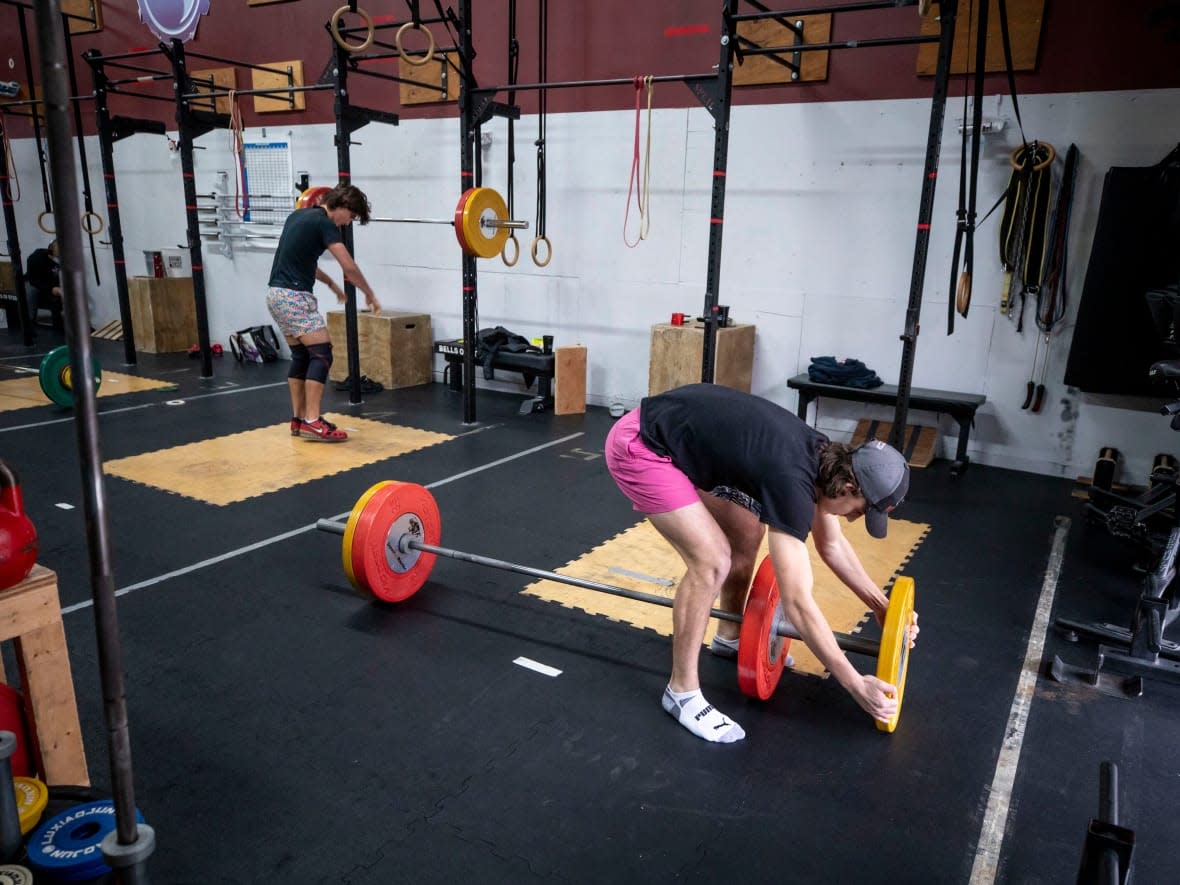Gyms to gradually reopen in B.C., but indoor organized gatherings still banned: province

Gyms and fitness centres across B.C. will be allowed to start gradually reopening as of Jan. 20, the province announced Tuesday in an update on public health restrictions.
Other previous restrictions, including the ban on indoor organized gatherings like wedding and funeral receptions, are being extended until Feb. 16.
Bars, nightclubs and lounges must remain closed and capacity limits of 50 per cent are still in place for theatres and stadiums.
Provincial Health Officer Dr. Bonnie Henry said she made the decision to extend those restrictions based on the current rate of transmission and hospitalizations, which have been at their highest point since the pandemic began under Omicron.
"We are still in a pandemic, as much as we would like to be over it," she said during a news conference.
When gyms reopen, vaccine cards will be required and capacity limits will be in place. People inside will need to be spaced apart, with masks encouraged for those working out and required for trainers.
WATCH | Dr. Bonnie Henry justifies gradual reopening of gyms:
Health-care staff brace for increase in hospital patients
The restrictions were first put in place near the end of December as the province tried to curb the spread of the Omicron variant.
Modelling data presented on Friday showed community transmission is now going down in most health regions across B.C., but health officials said the province will likely see a jump in hospitalizations over the coming week or two since there's a lag between new infections and patients ending up in hospital.
Representatives for doctors and nurses this week said their members are already on the verge of breakdown after two years under the strain of a pandemic.
Vancouver Coastal Health and Fraser Health released a joint statement Tuesday saying it has been "a challenge" to stay fully staffed and maintain full health-care services when it comes to surgeries, specialized programs and rural communities.
"Health-care workers have been on the front lines of care throughout the pandemic now for two years and are experiencing exhaustion and the same illness as the rest of the population," it read.
VCH said it has postponed 154 non-urgent surgeries over the past month because it doesn't have enough operating rooms, while Fraser Health has rescheduled 128.
Henry's updated public health order said "the stress under which the public health and health-care systems are currently operating, and the impact this is having on the provision of health care to the population" was a factor in her decision to extend restrictions.
Other agencies, like B.C. Ferries, are continuing to warn the public about a drop in service as staff call in sick.
B.C. reported 854 people in hospital with COVID-19 as of Tuesday, including 112 in intensive care.
The new hospitalization numbers represent an increase of 35 COVID-19 patients hospitalized within the last 24 hours, including 13 more patients in the ICU.
Health Minister Adrian Dix said more than 95 per cent of B.C.'s hospital bed capacity is currently occupied with regular as well as COVID-19 patients.
Dix said that 8,778 base beds were in use out of a total capacity of 9,229 beds. He said there were an additional 2,353 surge beds, 570 of which were occupied.
Antiviral treatment en route to B.C.
Henry says B.C. is expecting to receive 4,000 doses this week of the COVID-19 antiviral treatment Paxlovid, which is designed to help the body fight off a COVID-19 infection.
She said Health Canada is also looking at approving two other vaccines, including one made from tobacco plants.
But she warned that people who are holding out for alternatives to mRNA vaccines should know the treatments won't be available for some time while Omicron continues to quickly spread and sicken people, particularly those who are unvaccinated.


